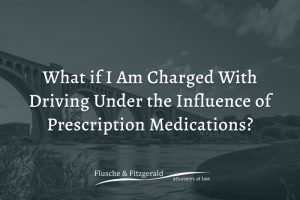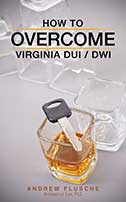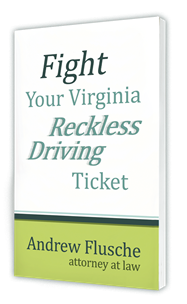What If I Am Charged With Driving Under the Influence of Prescription Medications?
Getting charged with driving under the influence (DUI) can be a frightening experience, especially when the cause is prescription medication.
Many Virginians assume that because their medication is legally prescribed, they are safe to drive.
However, this is not necessarily the case. Driving under the influence of prescription drugs is treated with the same seriousness as driving under the influence of alcohol.
If you find yourself facing such a charge, it’s essential to understand the implications and your rights. You need to know how to fight a DUI charge for prescription drugs and the steps you can take to protect yourself.
Can You Get a DUI from Driving on Prescribed Medication?
In Virginia, it is illegal to operate a vehicle if you are impaired, regardless of whether the substance causing the impairment is alcohol, illegal drugs, or prescription medication. You may wonder, can law enforcement issue a DUI for driving under the influence of prescription drugs? The law is clear that impairment is impairment, no matter the source.
Virginia Code § 18.2-266 states that it is unlawful for any person to drive or operate any motor vehicle while under the influence of any narcotic drug or any self-administered intoxicant or drug of whatever nature, which impairs their ability to drive or operate the car safely. This means that even medications prescribed by a doctor can lead to a DUI charge if they impair your driving ability.
Given that prescription medications can cause impairment, it’s critical to be aware of their potential effects on your ability to drive. Some commonly prescribed drugs that can impair driving include:
- Opioids (e.g., Oxycodone, Hydrocodone) — these can cause drowsiness, dizziness, and impaired cognitive function;
- Benzodiazepines (e.g., Valium, Xanax) — these are used to treat anxiety and can cause sedation and slowed reaction times;
- Sleep Medications (e.g., Ambien, Lunesta) — can cause drowsiness and impaired motor skills; and
- Antidepressants — Some can cause drowsiness and blurred vision.
If you are taking any of these medications, it is crucial to discuss their potential side effects with your doctor and understand how they may impact your ability to drive safely.
How to Fight DUI Charges for Prescription Drugs
If you have been charged with a DUI for prescription medication, there are several strategies you can use to fight the charge:
- Prove you were not impaired. The prosecution must prove beyond a reasonable doubt that your driving was impaired. If you can show that you were driving safely and the medication did not affect your abilities, you may be able to get the charges dismissed.
- Challenge the traffic stop. If the police did not have a valid reason to pull you over, any evidence obtained during the stop might be inadmissible in court.
- Question the testing methods. Field sobriety and chemical tests can be challenged based on their accuracy and how they were administered.
- Medical expert testimony. A medical expert can testify that the medication you were taking did not have impaired your driving ability.
With the right legal strategy and evidence, you can effectively challenge the charges against you.
Driving Under the Influence of Prescription Drugs Is the Same as Drinking and Driving
It’s important to understand that in the eyes of the law, driving under the influence of prescription drugs is treated just as seriously as driving under the influence of alcohol. This means the penalties can be severe. Penalties for a DUI conviction in Virginia may include the following:
- Fines—these can range from a few hundred to several thousand dollars;
- License suspension—your driver’s license could be suspended for up to a year or longer (for a second or subsequent offense);
- Jail time—depending on the severity of the offense and any prior convictions, you could face jail time
- Mandatory substance abuse program—you may be required to attend and complete a substance abuse program; and
- Increased insurance rates— DUI conviction can lead to significantly higher insurance premiums.
Understanding these penalties highlights the importance of seeking professional legal help if you are charged with a DUI involving prescription medication.
What to Do If You Get a DUI for Prescription Medication
If you have been charged with a DUI for prescription medication, you need to get legal advice from a DUI attorney familiar with Virginia law. This professional can guide you through the legal process and help build a strong defense. It’s essential to document your prescription and any medical advice you received.
Be cautious about discussing your medication and its effects to avoid self-incrimination. Collect evidence, like witness statements or video footage, showing your driving behavior was not impaired.
Understanding the answer to “Can you get a DUI for prescription medication?” is critical, and having a knowledgeable attorney by your side can make a significant difference in your case.
Are You Facing Prescription DUI Charges? Call our Virginia DUI Defense Lawyers Today
Can you get a DUI from driving on prescribed medication? Absolutely. However, before you are convicted of anything, it’s the government’s job to prove you guilty beyond a reasonable doubt–if it can. And that’s where Flusche & Fitzgerald, Attorneys at Law, come into play.
Our attorneys handle all types of traffic offenses, and know what it takes to ensure your case ends in the best result possible. We also handle a wide variety of other offenses, including, DWIs, misdemeanors, and felonies. To learn more, and to schedule a free consultation today, give Flusche & Fitzgerald, Attorneys at Law a call. You can also connect with us through our secure online contact form.





